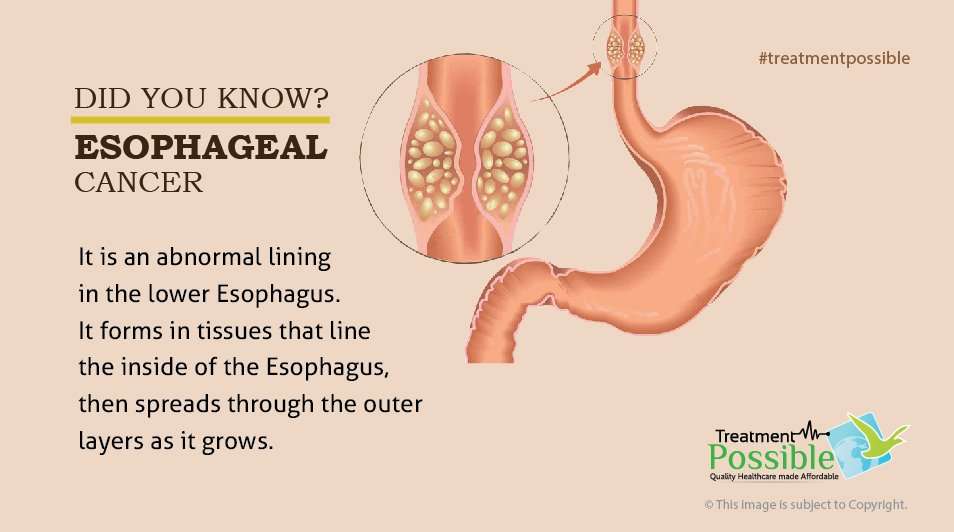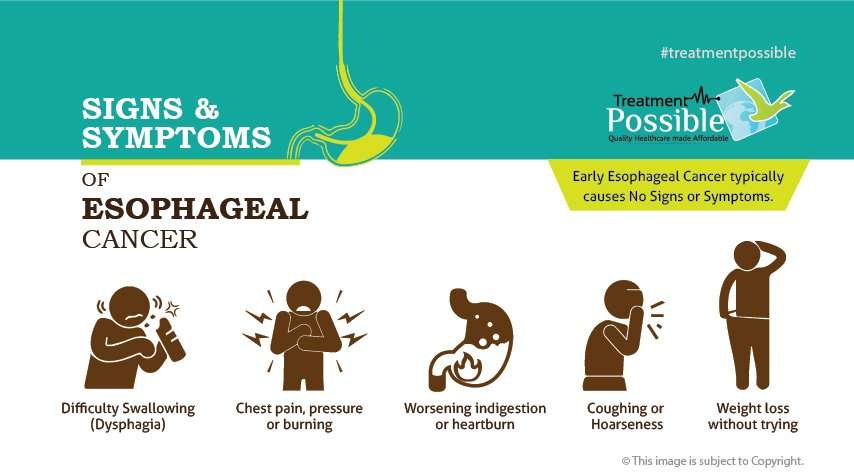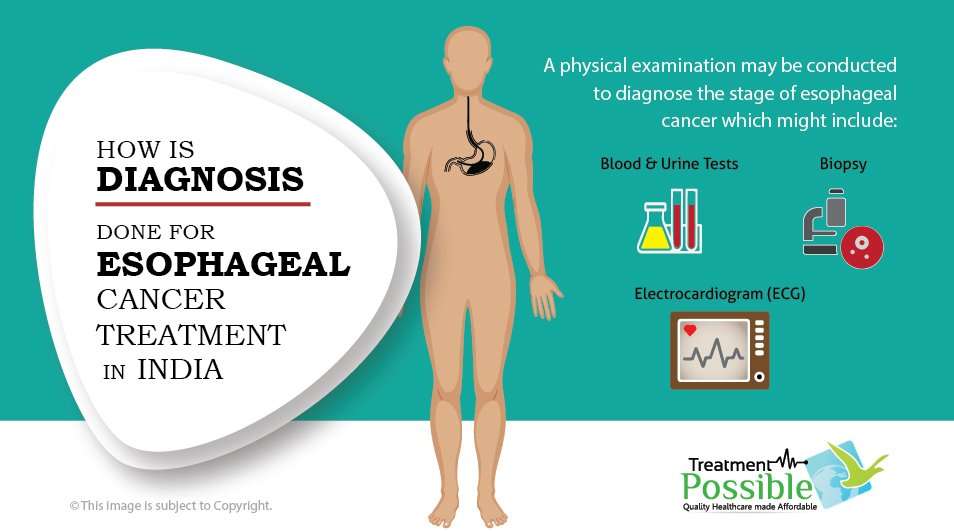What is Esophagus Cancer?
Esophagus cancer is a type of cancer affecting the tube running from the throat to the stomach (esophagus). Esophagus helps you to swallow food from your throat to your stomach to be digested and Esophageal cancer can occur when a malignant tumor forms in the lining of the esophagus. This article will help you understand the causes and symptoms of esophagus cancer.
1. Alcohol increases the risk of cancer of the mouth, the pharynx, the larynx, and the esophagus.
2. Tobacco smoke can cause cancer in organs such as mouth, trachea, esophagus, throat, larynx, liver, pancreas, and bladder.

How does Esophagus Cancer begin?
Esophagus cancer starts in the cells lining the esophagus and can occur anywhere along the esophagus. Men are more prone to get esophageal cancer than women.
Esophageal cancer starts when cells in the esophagus develop changes (mutations) in their DNA. These mutations begin to multiply and the accumulating abnormal cells form a tumor in the esophagus that grows to invade nearby structures and spread to other parts of the body.
What are the Types of Esophagus Cancer?
The types of esophagus cancer include:
- Squamous cell carcinoma occurs when cancer starts in the flat, thin cells making up the lining of the esophagus. This often appears in the upper or middle portions of the esophagus.
- Adenocarcinoma occurs when cancer starts in the mucus-secreting glands of the esophagus. This often appears in the lower portion of the esophagus.
Some rare forms of esophagus cancer will include small cell carcinoma, sarcoma, lymphoma, melanoma and choriocarcinoma.
What are the Causes and Risk factors of Esophagus Cancer?
Smoking, heavy alcohol consumption, and Barrett’s esophagus (a precancerous condition caused by chronic acid reflux) are the main causes for developing esophagus cancer. However, it has been noticed that chronic irritation of your esophagus increases the risk of esophagus cancer. But there are other causes and risk factors which include the following:
- If you have a reflux disorder, such as gastroesophageal reflux disease (GERD)
- If you are obese
- If you have bile reflux
- If you have achalasia, a condition where the muscle at the bottom of the esophagus does not relax properly
- If you have a regular habit of drinking very hot liquids
- If you diet does not have enough fruits and vegetables
- If you have undergone radiation treatment to the chest or upper abdomen
What are the Symptoms of Esophagus Cancer?
Early Esophagus cancer has no signs or symptoms but as your cancer progresses, it may include:
- Unintentional weight loss
- Indigestion or heartburn
- Pain or difficulty while swallowing
- Frequent choking while eating
- Food coming back up the esophagus
- Chest pain
- Chronic cough
- Hiccups
- Vomiting
Advanced esophageal cancer can also cause bleeding in the esophagus.

Do you have the above Symptoms of Esophagus Cancer?
How is Esophageal Cancer diagnosed?
Testing methods for diagnosing esophagus cancer include the following:
- An endoscopy is the use of an instrument with a camera attached to a tube that goes down your throat and allows your doctor to view the lining of your esophagus to check for abnormalities.
- A barium swallow is an X-ray imaging test which allows your doctor to check the lining of your esophagus. This is done by swallowing a chemical called barium while the images are being obtained.
- A biopsy is a process in which your doctor will remove a sample of the suspicious tissue with the help of an endoscope and send it to the lab for testing.
- A CT scan, PET scan, or MRI is used to check if cancer has spread to other parts of the body.

What are the Stages of Esophagus Cancer?
The stages of esophagus cancer are numbered (I through IV); the higher the number means that the cancer is advanced.
- Stage 0: Abnormal cells (not yet cancer) are found only in the layer of cells lining the esophagus.
- Stage I: Cancer cells are found only in the layer of cells lining the esophagus.
- Stage II: Cancer has reached the muscle layer, which is the outer wall of the esophagus. It may have also spread to 1 or 2 lymph nodes.
- Stage III: Cancer has reached deep into the inner muscle layer which is the connective tissue wall. It may have also spread to the surrounding organs or to the lymph nodes nearby.
- Stage IV: Cancer has spread to other organs in the body or to the distant lymph nodes.


